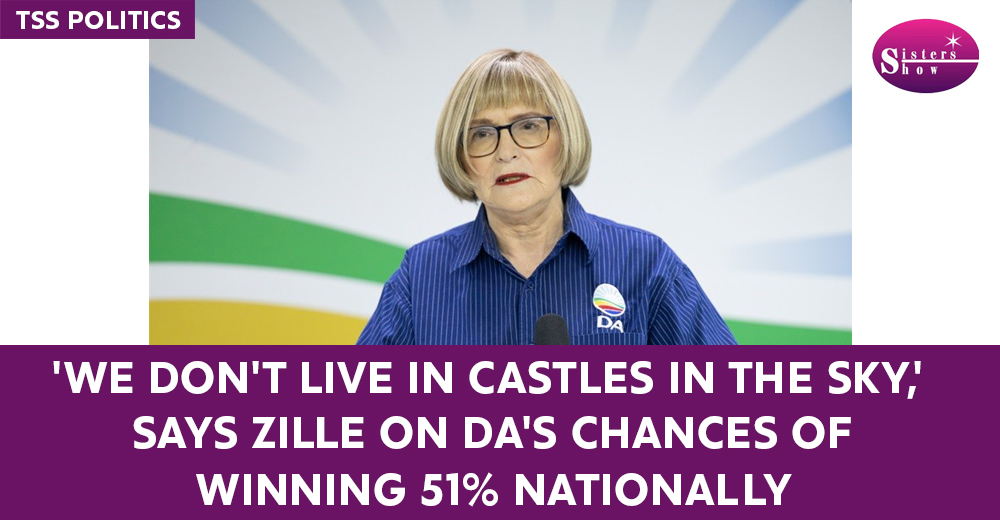
South Africa General Election: ‘We Don’t Live in Castles in the Sky,’ Says Zille on DA’s Chances of Winning 51% Nationally
As South Africa gears up for one of the most pivotal general elections since the end of apartheid, Democratic Alliance (DA) heavyweight Helen Zille remains grounded about the party’s prospects. While the DA aspires to secure 51% of the national vote in Wednesday���s election, Zille emphasized that the party does not harbor unrealistic expectations.
Zille’s Realistic Outlook on DA’s Prospects
On Monday, the DA’s federal chairperson was among the 137,558 voters in the Western Cape participating in special voting. Speaking at Pinelands High School in Cape Town, Zille underscored the significance of this election, marking it as potentially historic.
“This vote is enormously important because it might be the first time that the ANC will fall under 50%. It’s entirely predictable that they will never get beyond 50% again. It’s a watershed election,” she stated before casting her vote.
Zille pointed out that the DA has made consistent progress due to its firm stance against the abuse of power in South Africa. “The more we grow, the more success our democracy can achieve. This is the end of the era of ANC domination and the start of real checks and balances in place.”
Western Cape and the Risks of Voting for Smaller Parties
Expressing confidence about the DA’s stronghold in the Western Cape, Zille cautioned voters against the potential pitfalls of supporting smaller parties. She argued that such votes could inadvertently empower the ANC.
“People must vote for who they want to. But if they want the rest of the Western Cape to look like Beaufort West, Knysna, and Theewaterskloof, then they will start splitting their votes and vote for every small party and get the ANC in and get their towns destroyed within two years. That is what we have seen in Knysna and Theewaterskloof,” she remarked.
The Challenge of Coalition Politics
Zille also highlighted the instability that small parties often bring to coalitions, describing them as “very unstable.” She noted that these smaller entities frequently align with the ANC for personal gain, which she described as “extortion politics.”
“What you have is tiny parties standing up and gathering their votes and, when positions are offered to them, they go to the ANC. They play extortion politics often. They will go to the ANC and say what are you giving us. They come to the DA and try to extort positions from us, but we say no. We don’t play that game.”
The Significance of This Election
Zille’s statements come at a critical juncture for South Africa’s political landscape. The potential for the ANC to fall below 50% for the first time since 1994 underscores the volatility and changing dynamics of the nation’s electorate. This election could herald a new era of political competition and governance in South Africa, with the DA positioning itself as a formidable opponent to the ANC’s long-standing dominance.
Conclusion
As the nation waits with bated breath for the results of Wednesday’s election, the DA remains both hopeful and realistic about its chances. Zille’s comments reflect a grounded understanding of the political landscape, while also highlighting the potential for significant change.




